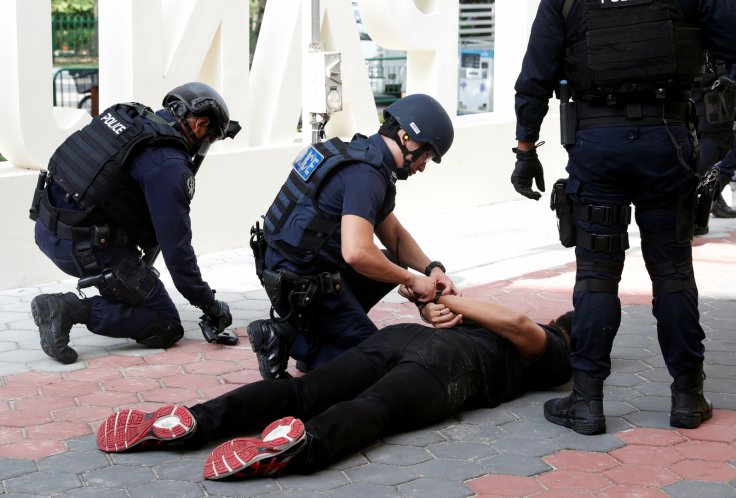
A 42-year-old British national was charged in court on Friday over a 2005 hoax regarding the terror attack on Singapore's 40th National Day Parade.
The accused, Khor Chye Siew has been charged with giving information which he knows to be false to a public servant, an offence under Section 182 of the Penal Code. He was arrested on May 26, 2018, at Changi Airport after his arrival in the country from London.
As per the police, on July 24, 2005, the officers were alerted by former Ministry of Information, Communications and the Arts (MICA) to an email from a previously unknown sender that stated a terror attack would take place on Singapore's 40th National Day Parade. That email was sent to Sarina Isnin, an officer from the then Ministry of Information, Communications and the Arts, at 10 am.
Further investigations revealed that the email was sent from overseas and later police identified the Khor, who sent the email to the officer. He allegedly wrote in the email that Singapore's intelligence service had failed to detect all terrorist activities and they have to take this information seriously otherwise something horrible would happen. Khor specifically stated that three suicide bombing will take place on National Day Parade and he knew who were these people and where were they hiding.
However, after his arrest, police stated that the accused was believed to have sent the false information of the attack to MICA to cause unnecessary alarm so that resources would be deployed to look into the information.
The law states that anyone convicted under Section 182 of the Penal Code, Chapter 224 will face an imprisonment, which may extend to one year, or with fine which may extend to $5,000, or with both.
In a news release, police said that they would like to remind people that "Police resources could have been put to better use in dealing with real crimes and emergencies than investigating into false reports or false information. Those who lodge false Police reports or provide false information will face serious consequences under the law."









